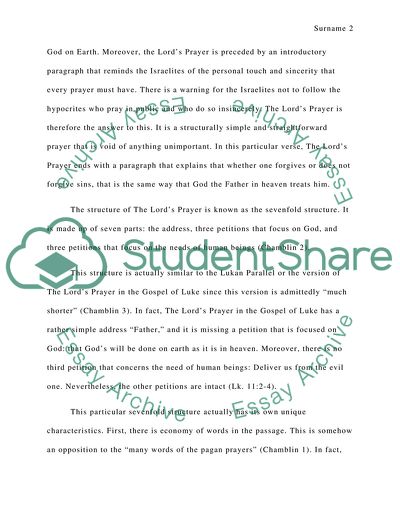Cite this document
(Exegesis of The Lords Prayer Essay Example | Topics and Well Written Essays - 2500 words, n.d.)
Exegesis of The Lords Prayer Essay Example | Topics and Well Written Essays - 2500 words. https://studentshare.org/religion-and-theology/1809852-exegesis-paper
Exegesis of The Lords Prayer Essay Example | Topics and Well Written Essays - 2500 words. https://studentshare.org/religion-and-theology/1809852-exegesis-paper
(Exegesis of The Lords Prayer Essay Example | Topics and Well Written Essays - 2500 Words)
Exegesis of The Lords Prayer Essay Example | Topics and Well Written Essays - 2500 Words. https://studentshare.org/religion-and-theology/1809852-exegesis-paper.
Exegesis of The Lords Prayer Essay Example | Topics and Well Written Essays - 2500 Words. https://studentshare.org/religion-and-theology/1809852-exegesis-paper.
“Exegesis of The Lords Prayer Essay Example | Topics and Well Written Essays - 2500 Words”. https://studentshare.org/religion-and-theology/1809852-exegesis-paper.


